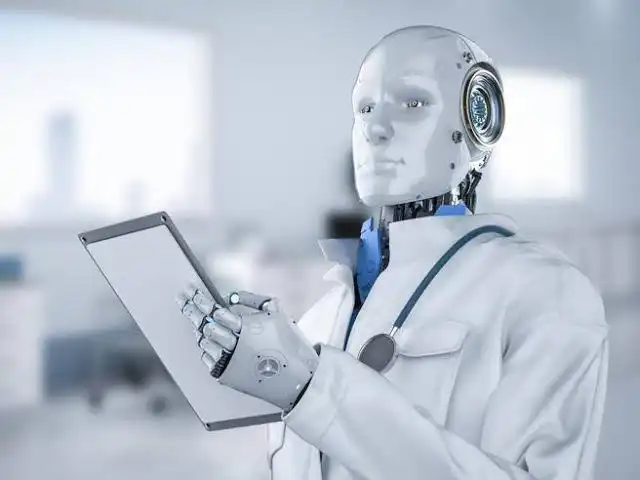The transformational and the ever-evolving landscape of healthcare has made way for the involvement of technological advances like Artificial Intelligence (AI).
AI emerges as a game-changer, revolutionizing the industry and improving patient outcomes. The integration of AI technologies brings forth a multitude of benefits, shaping the future of healthcare delivery.
Here are five impactful ways AI is transforming the healthcare sector
1. Early Disease Detection and Diagnosis
One of the most significant contributions of AI to healthcare is its ability to analyze vast amounts of medical data quickly and accurately. Machine learning algorithms can identify subtle patterns in medical imaging, such as X-rays and MRIs, facilitating early detection of diseases like cancer. With AI-driven diagnostic tools, healthcare professionals can make more informed decisions, leading to timely interventions and improved patient outcomes.
2. Personalized Treatment Plans
AI empowers healthcare providers to deliver personalized treatment plans tailored to individual patient needs. By analyzing patient data, including genetic information and treatment histories, AI algorithms can predict the effectiveness of various treatment options. This allows for the customization of therapies, minimizing trial-and-error approaches and optimizing treatment outcomes. Personalized medicine becomes a reality, enhancing the efficiency and efficacy of healthcare interventions.
3. Predictive Analytics for Patient Management
AI-driven predictive analytics plays a crucial role in proactive patient management. By analyzing patient data over time, AI can predict potential health risks and complications. This enables healthcare providers to intervene early, preventing the progression of diseases and reducing the likelihood of hospital readmissions. Through continuous monitoring and analysis, AI enhances patient care by shifting the focus from reactive to proactive healthcare management.
Read Also: 8 Key Things to Know About Rheumatoid Arthritis
4. Streamlining Administrative Processes
In addition to clinical applications, AI streamlines administrative processes, improving the overall efficiency of healthcare organizations. AI-powered chatbots and virtual assistants can handle routine administrative tasks, such as appointment scheduling and billing inquiries, freeing up healthcare professionals to focus on patient care. Automation of administrative workflows reduces operational costs and enhances the overall patient experience.
5. Enhancing Drug Discovery and Development
The drug discovery process is notoriously time-consuming and expensive. AI accelerates this process by analyzing vast datasets to identify potential drug candidates and predict their efficacy. Machine learning models can sift through extensive biological and chemical data, significantly reducing the time and resources required for drug development. This not only expedites the availability of new treatments but also opens avenues for targeted therapies and precision medicine.










